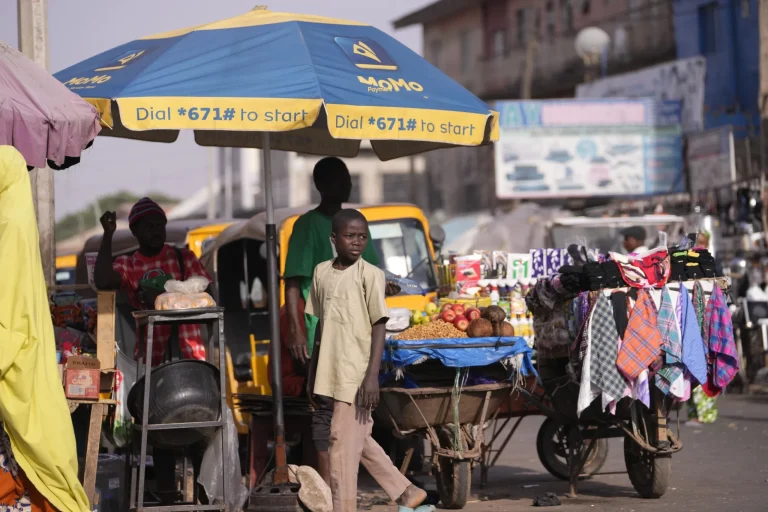YAOUNDÉ, Cameroon – A Catholic-inspired group of researchers, criminologists and human rights activists in Nigeria accuses some authorities of planning to expand jihadist activities to the heavily Christian southeast under the cover of state breeding projects.
The projects were promoted as a way to modernize agriculture and improve livestock management. The idea is to create designated areas where livestock can be raised and grazed, thereby reducing conflicts between herders and farmers.
In 2019, the Nigerian government launched a 10-year national livestock transformation plan aimed at establishing 119 ranches in several parts of Nigeria in order to “quell the country’s herder-farmer conflict.”
The Catholic-inspired group, the International Society for Civil Liberties and the Rule of Law (Intersociety), says the plan is a ruse to populate the Southeast with Muslim shepherds who have terrorized Christian communities for years.
RELATED: Report Claims Nigerian Security Forces Care More About Cows Than Christians
Intersociety claims to have meticulously monitored recent developments in some farming communities in Nigeria. Their investigation revealed a disconcerting trend: local leaders are being forced to give up plots of land for these animal breeding initiatives. However, Intersociety says these seemingly innocuous projects may hide a more worrying agenda.
According to their March 11 report, the livestock projects are a smokescreen for the resettlement of Fulani herders.
The predominantly Muslim Fulani ethnic group has been at the center of long-standing tensions in Nigeria, particularly in areas where it clashes with local, mostly Christian farmers, often over land and resources.
These conflicts degenerated into violence, leading to the deaths of thousands of Christians and the depopulation of entire Christian communities. One of the most egregious Fulani attacks on Christians took place at Christmas, when around 200 Christians were massacred.
At least 52,000 Christians have been killed in Nigeria since 2009, according to Intersociety.
Last year, Fulani herdsmen were responsible for the deaths of at least 3,500 Christians, the group said.
Intersociety has vowed to resist plans by governors of Nigeria’s Enugu, Anambra, Abia, Imo and Ebonyi states to resettle Fulani herdsmen, accused of such jihad-inspired attacks.
The concern, according to Intersociety, is particularly strong in Enugu State, where community lands are increasingly threatened with being appropriated “for the breeding or settlement of the Fulani”.
“The Peter Mbah-led state government has been heavily and widely accused of coercing some communities in the state with vast hectares of agricultural land, bushland and forest to hand over or relinquish much of it. these for mechanized agriculture or cow breeding,” Intersociety said in its report. report signed by the Chairman of the Board of Directors, Emeka Umeagbalasi.
He described the plan as “a cover-up for Fulani jihadist settlements” in the state.
RELATED: Senators Blame Biden Administration for Murder of Nigerian Christians
The report notes that the Southeast, which is now being targeted by the government for ranching, is “too small to be taken over by the Fulani.” He claims the land was ceded for Fulani settlements and could end up becoming “Fulani jihadist settlements” disguised as cattle ranches.
In its statement, Intersociety warned interested state governors to “back off” such measures, asking them to desist from “any disguise or camouflage aimed at establishing herdsmen colonies in any part of their respective states” .
“These measures must be removed across the Southeast or face legal and popular resistance,” the organization said.
The cattle breeding project also sparked reactions from residents who suffered from Fulani attacks.
Chief Johnson Okolo, an Enugu-based farmer who lost his crops to cattle and his farmland to marauding Fulani herdsmen, opposed the cattle ranching project.
“I am a victim, I lost over 6,000 palm trees in my plantation at Amofia Agu Affa in Udi Council of Enugu State to Fulani herdsmen who destroyed the palm plantation and took over the place for over four years now,” he told the media.
“I have not been to my palm plantation in my community for four years because the herdsmen have taken over the plantation to make it a colony,” Okolo said, adding that giving the herdsmen land to settle in the area only invites trouble.
The Enugu government has openly acknowledged its intention to establish modern ranches as part of its agro-industrial productivity agenda. According to their statement, these ranches will serve as a strategic measure to combat the activities of kidnappers and other criminals who disguise themselves as herdsmen.
“It has become necessary to explain issues regarding the design of the use of ranching, a modern method all over the world, to raise livestock,” the government said.
“The recent viral messages and the outcry of some people against what they interpreted as the government’s intention to seize (…) land and give it to the Fulani under the guise of RUGA (Fulani settlements) are the unfortunate machination of those who wish to make a mountain out of a molehill for political reasons,” he continues.
“The government’s intention is clear in this matter. Armed bandits and kidnappers in the name of herdsmen have long taken advantage of our forests and farmlands to commit heinous crimes, kidnappings, rapes and murders. The Enugu State Government has decided to put an end to these practices and introduce ranching, the most modern way of raising livestock,” the statement said.
“Once established, no livestock breeder or dealer will be allowed to roam undesignated areas with their animals for grazing,” it asserts.
Nigeria has a population of more than 230 million, almost evenly split between Christians, mainly in the south, and Muslims, mainly in the north.
As the country grapples with complex socio-political issues, the delicate balance between agricultural development, security and human rights remains difficult.
The concerns of the Catholic group are a stark reminder that seemingly innocuous initiatives can hide hidden agendas, and that vigilance is essential to safeguard the well-being of all citizens.


